License to Betray
“Over and over again, records show, predatory physicians took advantage of a doctor’s special privilege — the daily practice of asking trusting people to disrobe in a private room and permit themselves to be touched.”
Showing 25 articles matching fk33.cc_where to buy magnesium sulfate.
“Over and over again, records show, predatory physicians took advantage of a doctor’s special privilege — the daily practice of asking trusting people to disrobe in a private room and permit themselves to be touched.”
A case in Baltimore — in which two men were convicted of the same murder and cleared by DNA 20 years later — shows how far prosecutors will go to preserve a conviction.
Megan Rose ProPublica Sep 2017 30min Permalink
She’s trying to keep comedy alive at a moment when Hollywood—and its audience—can’t seem to crack a smile.
Taffy Brodesser-Akner New York Times Magazine Oct 2018 25min Permalink
“My entire vocation as an investigative reporter was predicated on being able to reveal truths, and yet I could not even rustle up the evidence to convince my own mother.”
Albert Samaha Buzzfeed Mar 2021 25min Permalink
About 100 miles from Galveston, Flower Garden Banks is home to some of the healthiest coral communities in the world. Some unlikely allies came together to help expand protections, but will it be enough?
Juli Berwald Texas Monthly Aug 2021 30min Permalink
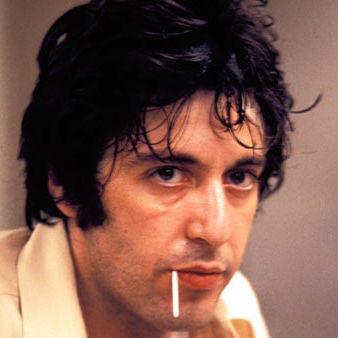
Argo, The Insider, Fast Times at Ridgemont High, Dog Day Afternoon—a collection of great articles that became (mostly) great movies.</p>
An 11-month investigation ends with a booster, now in prison for a Ponzi scheme, going public with details of how he spent millions on college athletes from 2002 to 2010.
[Shapiro] said his benefits to athletes included but were not limited to cash, prostitutes, entertainment in his multimillion-dollar homes and yacht, paid trips to high-end restaurants and nightclubs, jewelry, bounties for on-field play including bounties for injuring opposing players, travel and, on one occasion, an abortion.
Charles Robinson Yahoo! Sports Aug 2011 30min Permalink
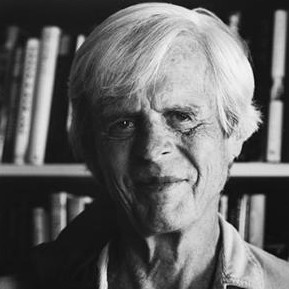
A collection of articles by and about the Paris Review founder, who died 10 years ago this week.</p>

A collection of picks about the pills we swallow and the people who make them, take them and sell them.</p>

This guide is sponsored by The Second Machine Age, the New York Times bestseller by MIT's Erik Brynjolfsson and Andrew McAfee.
The Second Machine Age is a book about how the technological revolution is reinventing our lives and our economy. But unlike so many writing about tech, Brynjolfsson and McAfee, two thinkers at the forefront of their field, are hopeful for our technological future. And they've come up with roadmap for how to navigate it.
Buy a copy today. And while you wait for it to arrive, check out this collection of great, optimistic articles about tech, curated by Brynjolfsson and McAfee, that helped inspire their book:
Way before Ray Kurzweil, Keynes showed us what happens as exponential growth accumulates over time. His projections about how big the economy would become after decades of compounded growth sounded like lunacy to readers during the Great Depression but were amazingly accurate, as was his prediction that humanity would move past its “struggle for subsistence” within a century. At the same time, he overestimated how quickly the work week would get shorter – most of us are working a lot more hours than he envisioned.
John Maynard Keynes Essays in Persuasion Jan 1930 15min
This description of what Usenet is and how it works, written shortly before the Web exploded into the mainstream, got important things right: the net’s great variety and utility, its unruliness, and the overall spirit of helpfulness and sharing that persists more than two decades later.
Robert Wright The New Republic Sep 1993 20min
Economist Julian Simon is an intellectual hero of ours. Throughout his underappreciated career he made the case that things were getting better instead of worse, backed up his arguments with masses of data, and won wagers against prominent Malthusians. This piece is a great introduction to his thinking, and gives him some of the recognition he’s due.
Before the Watson supercomputer trounced the two best human Jeopardy! players early in 2011, this article revealed its uncanny ability to mine vast amounts of text in search of answers to tough questions, and to navigate the punning and other wordplay that the quiz show throws at its contestants. This is one of the articles that made us say to each other “Something’s different now…”
Clive Thompson New York Times Magazine Jun 2010
Kasparov, a powerful writer, explains how computers came to dominate humans at chess and why this is not cause for alarm that they’ll soon be able to do everything better than we do. Chess has long been an exemplar of human intelligence, and increasingly a metaphor for how humans and machines may co-exist.
Garry Kasparov The New York Review of Books Feb 2010 15min
The digital economy is not just different, too often it’s invisible. Brian Arthur brings it to life with a description of all the ways it increasingly surrounds us. As “software eats the world”, to use Marc Andreessen’s evocative phrase, we’ll all need to get more and more familiar with this other economy.
Brian Arthur McKinsey Quarterly Oct 2011 10min
Captures the palpable energy coming from San Francisco’s young technology entrepreneurs, who by perceiving no barriers are knocking a lot of them down. We share Heller’s sense that things are happening more quickly there than just about anyplace else.
Nathan Heller New Yorker Oct 2013 35min
For the data lovers among us, here’s a slew of encouraging trends from falling poverty and crime, to rising life expectancy, literacy and computer power. There’s still a lot of work to be done, but the positive numbers feed our optimism.
Dylan Matthews Washington Post Nov 2013
Amazon • Barnes & Noble • iBookstore • Indiebound • Powell's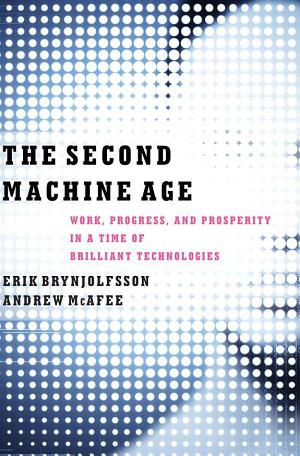 Buy The Second Machine Age today:</p>
Buy The Second Machine Age today:</p>
Jan 1930 – Nov 2013 Permalink
The Washington University philosophy professor devotes 4,697 words to the importance of using one’s education to better communicate with loved ones:
I want to talk to you about talking, that commonest of all our intended activities, for talking is our public link with one another; it is a need; it is an art; it is the chief instrument of all instruction; it is the most personal aspect of our private life. To those who have sponsored our appearance in the world, the first memorable moment to follow our inaugural bawl is the birth of our first word. It is that noise, a sound that is no longer a simple signal, like the greedy squalling of a gull, but a declaration of the incipient presence of mind, that delivers us into the human realm.
WIlliam Gass Washington University Jun 1979 20min Permalink
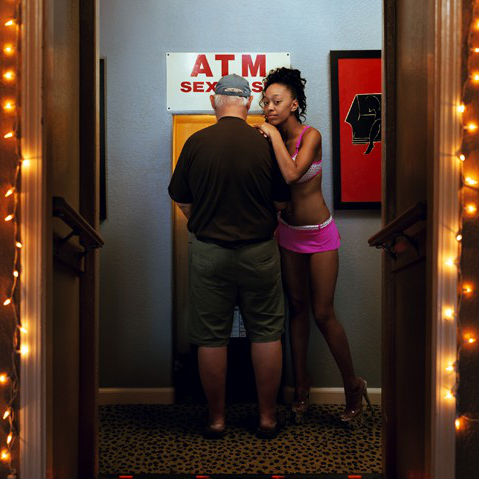
The economy’s impact on a brothel, the real lives of cam girls, and an interview with a john—a collection of articles on the business of sex.</p>

A collection of picks by and about the former editor of the New York Observer, who died Friday.</p>
Sponsored
Our sponsor this week is Twice Upon a Time, a new memoir from acclaimed author Hari Kunzru. When he moved to New York City, Kunzru choose as his imaginary guide the blind composer and musician Moondog, aka Louis Hardin. With great lyrical intensity Kunzru recalls the strange soundscape of an unfamiliar place, and celebrates both the city and the musical genius of Moondog.
Twice Upon a Time is the second title from Atavist Books and offers a unique, multilayered digital experience combining a beautiful prose essay on the sounds of New York with the extraordinary music of Moondog and binaural recordings of the city itself.
How the People’s Temple tore one family apart, told in part via letters:
We have at long last opened our hearts to you, expressing the sorrow and agony which we have restrained over six long years. Any time you express the wish to resume normal relations and exchange with us, the past will be forgotten. For after all we do love you and the children more than any other persons. We shall continue to cherish you to our last day on earth. The peerless joy of raising you from childhood to youth is a unique life experience, indeed. Your father and mother
Barry Isaacson LA Weekly Oct 2008 Permalink
Chris Klucsarits, aka Chris Kanyon aka Mortis,was a ’90s name in wrestling whose comeback had dual aims; for him to gain a spot on WWE’s roster, and to become wrestling’s first out star. It would end in suicide.
Thomas Golianopoulos The Awl Apr 2011 10min Permalink
On the shady underworld of door to door magazine sales teams, in which teens roam the country in vans, con locals with sob stories, party constantly in cheap motels, and leave behind a trail of rapes, fiery crashes, and new subscriptions.
Craig Malisow Houston Press Jul 2008 25min Permalink

From her early political career to the challenges she's faced in 2016 — a reading list on the Democratic nominee for president.
“Hillary Clinton was never a shy person.”
Connie Bruck New Yorker May 1994 2h10min
Two biographies of Hillary Clinton do not get us any closer to understanding her.
Linda Colley London Review of Books Aug 2007 10min
On Clinton’s Arab Spring.
Jonathan Alter Vanity Fair Jun 2011 30min
GROSS: I am just trying to clarify so I can understand.
CLINTON: No, I don't think you are trying to clarify. I think you're trying to say that, you know, I used to be opposed and now I'm in favor and I did it for political reasons. And that's just flat wrong. So let me just state what I feel like you are implying and repudiate it. I have a strong record. I have a great commitment to this issue and I am proud of what I've done and the progress we're making.
Terry Gross Fresh Air Jun 2014 30min
The drawbacks of being the front-runner.
Ryan Lizza New Yorker Nov 2014 25min
There’s nothing simple about this candidacy—or candidate.
Rebecca Traister New York May 2016 35min
May 1994 – May 2016 Permalink
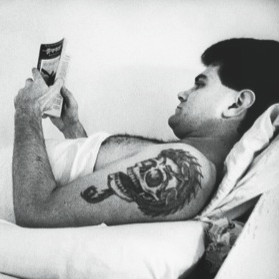 </h2>The voting booth, the jury box, the bench and the chair — a collection of picks on all sides of capital punishmet.
</h2>The voting booth, the jury box, the bench and the chair — a collection of picks on all sides of capital punishmet.
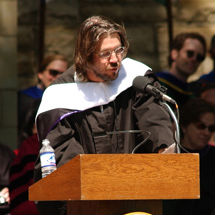 </h2>David Foster Wallace, Sheryl Sandberg, Jon Stewart — a collection of classic graduation speeches.
</h2>David Foster Wallace, Sheryl Sandberg, Jon Stewart — a collection of classic graduation speeches.

From grizzlies in Alaska to whales at SeaWorld, a collection stories of animals turning on humans.
On Timothy Treadwell, later immortalized in Grizzly Man, who lived and died by the bears of Alaska.
Ned Zeman Vanity Fair May 2004 40min
The life story of Travis the chimp and the family of tow truck operators who raised him like a human child before it all ended in tragedy.
Dan P. Lee New York Jan 2011 25min
The life story of Tilikum, a killer whale who dragged his SeaWorld trainer into the pool and drowned her in 2010. It was the third time the orca had been involved in a death during his 27 years in captivity.
Tim Zimmerman Outside Jul 2010 35min
Encountering a pack of wild dogs in Manhattan.
Rebecca Skloot New York May 2005 10min
“Joe’s hand began to tingle, and he called the group together. The toxins would leave his system in 48 hours, he said. He’d be conscious the whole time.”
Mark W. Moffett Outside Apr 2002 10min
After two people are found dead in Yellowstone National Park, a team of investigators tracks down the unlikely culprit: a grizzly bear.
Jessica Grose Slate Apr 2012 40min
Apr 2002 – Apr 2012 Permalink

Cancer, AIDS and weaponized smallpox—a collection of the best articles about disease.
How smallpox went from eradicated disease to the ideal weapon of bioterrorists.
Richard Preston New Yorker Jul 1999 50min
The author of The Hot Zone on how geneticists can help contain the current outbreak.
Richard Preston New Yorker Oct 2014 40min
The story of H1N1 and John Behnken, whose life it claimed.
Thomas Lake Atlanta Magazine Jun 2010 20min
New York during the early days of the AIDS epidemic.
Michael Daly New York Jun 1983 20min
Living on borrowed time, with liver cancer.
Marjorie Williams Vanity Fair Oct 2005 45min
Exploring the riddle of Morgellons disease: sufferers feel things crawling under their skin and hardly anyone believes them.
Leslie Jamison Harper's Sep 2013 25min
Jun 1983 – Oct 2014 Permalink
On riding China’s Qinghai-Tibet Railway just before it opened:
Staring out at the shimmering tracks and concrete-reinforced embankment extending to the horizon, I can’t help but think of the senior Chinese scientist who confessed to me that the rail line he helped build might not be safe for long.
David Wolman Wired Jul 2006 15min Permalink
Growing up in Toledo, Ohio, Gina Grimm always wondered who her biological parents were. “You know, you go to the supermarket and think, ‘That lady kinda has my nose.’ Or, you know, ‘That man kinda has a resemblance to my face.’”
Liliana Segura The Intercept Apr 2017 10min Permalink
A team of researchers at Columbia believe that small changes to college life could make campuses safer.
Jia Tolentino The New Yorker Feb 2018 20min Permalink